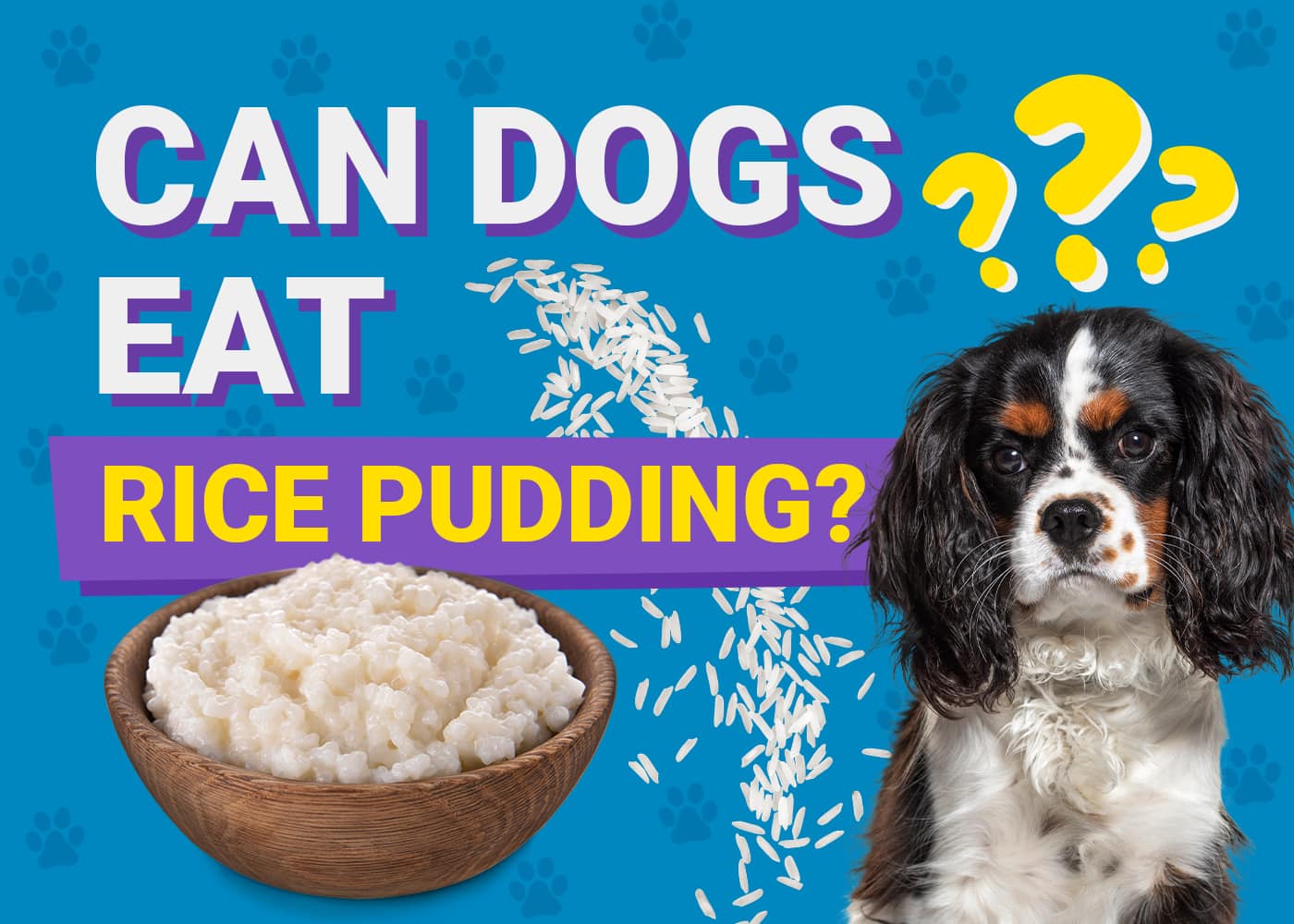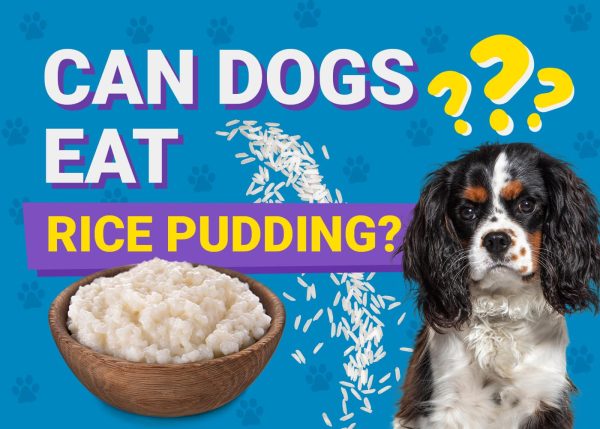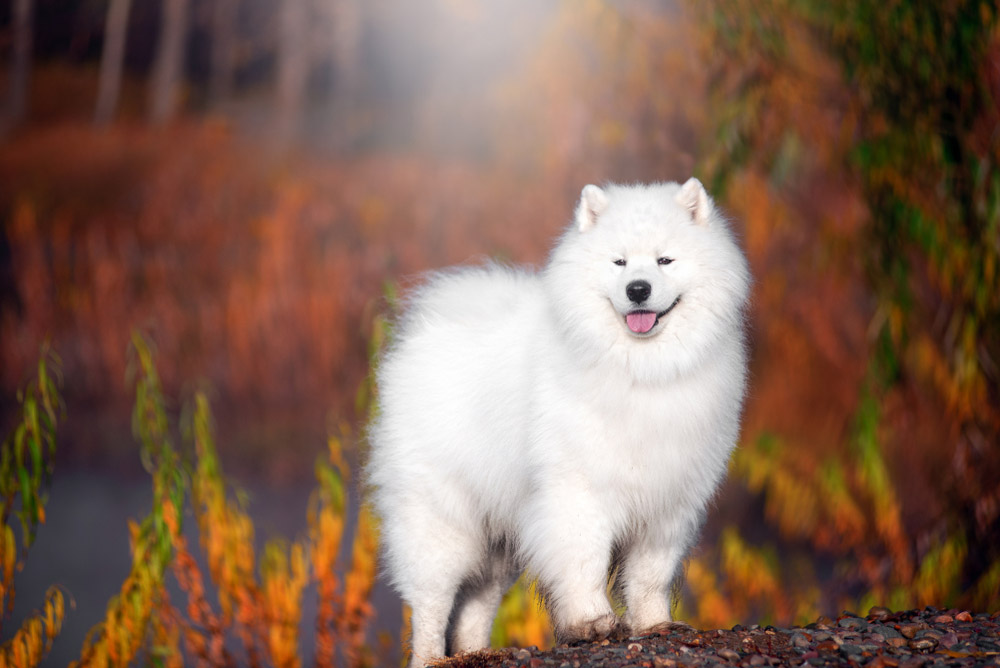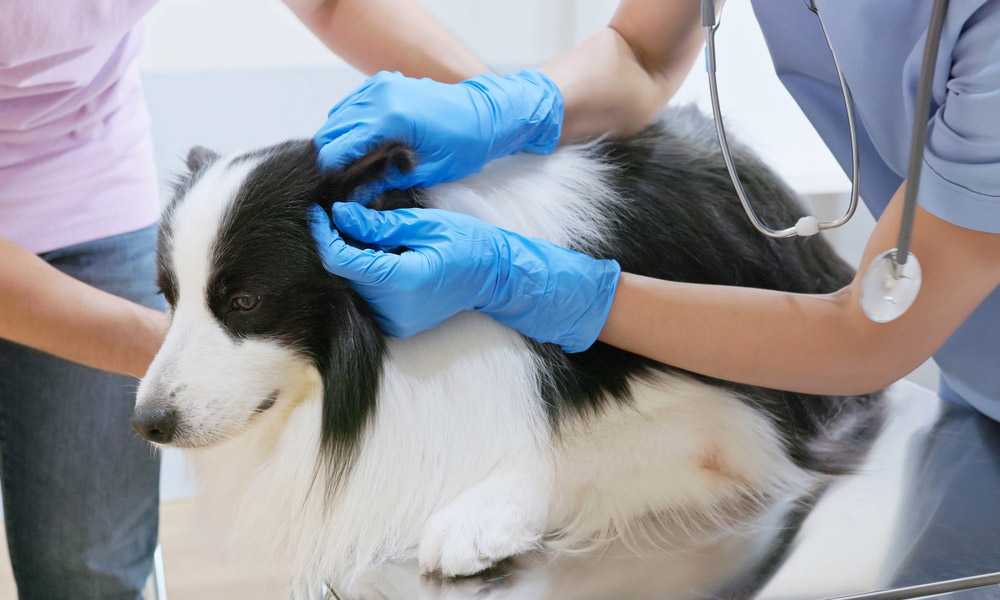Anyone who owns a dog knows how it feels to be enjoying a yummy snack only to look over and see big, begging eyes watching each bite you take. With the close relationship we share with our dogs, it’s only reasonable for them to expect us to share everything with them. Unfortunately, not every food we eat is safe for our canine friends to enjoy.
One of the treats many of us eat is rice pudding. This creamy and tasty snack really hits the spot sometimes and if you are in a sharing mood, you might want to know: can dogs eat rice pudding?
If we’re talking about plain rice pudding with nothing added, then it’s not necessarily bad for dogs, but it’s not exactly good for them either, due to the sugar, milk, and butter found inside. When things like raisins or chocolate or artificial sweeteners are mixed in, then rice pudding becomes a toxic no-go.
Let’s learn more about the relationship between dogs, human treats, and why not all things we eat are good for your dog’s health (although they’re often not great for ours either!).
What’s in Rice Pudding?
As with lots of recipes, rice pudding can be made in several different ways. However, there are certain ingredients that are pretty consistent throughout the recipes. When made in its purest form, rice pudding includes rice, milk, eggs, butter, and sugar. Let’s take a look at each ingredient and see what, if anything, it offers your dog when they eat it.
Rice
Rice is one of the most ubiquitous food items in the world, and is a commonly used carbohydrate in many dog foods on the market today. A 100 mg serving of plain, white rice can have up to 300 calories, but also contains Vitamins B5 and B6, which are used to turn the food your dog eats into the energy it needs. You’ll also find copper in rice, which is used for healthy blood cells, and Manganese, which promotes bone health and reduces inflammation. Rice is often to help when a dog is having an upset stomach, as a bland but filling ingredient.
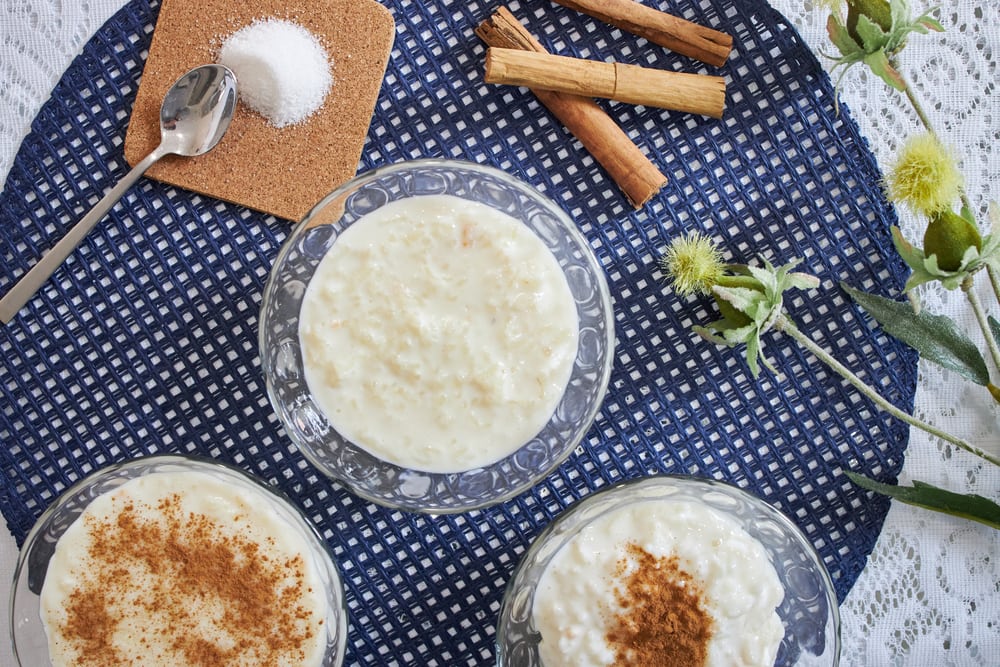
Milk
There’s no denying the benefits of milk; calcium and phosphorus are great for teeth and bones, and like rice, milk has a lot of B vitamins in it. However, once weaned from their mothers, dogs tend not to tolerate lactose well, and too much dairy is likely to cause gastrointestinal upsets and diarrhea.
Eggs
Eggs provide dogs with a lot of protein which is vital to their health, providing your dog with energy and amino acids. Amino acids are excellent at helping control your dog’s hormones and providing them with good skin and coats. Eggs are also a good source of selenium, a mineral that helps keep your dog’s thyroid acting as it should, plus more of those wonderful B vitamins.
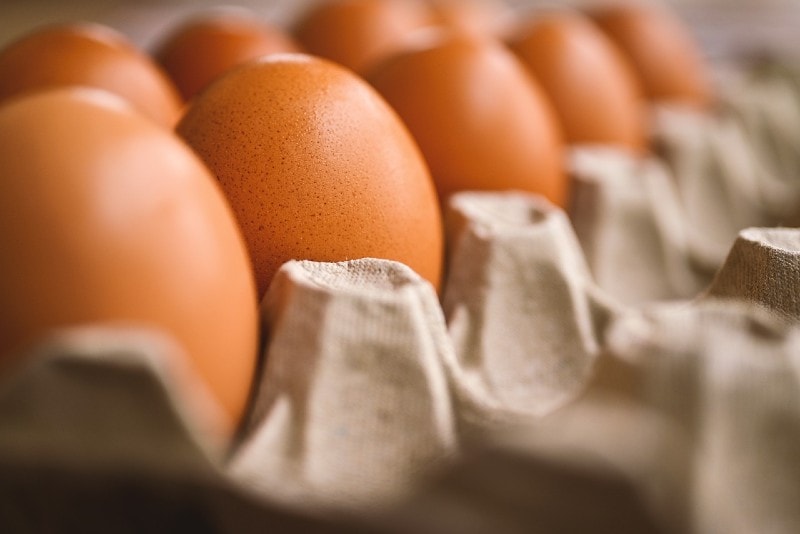
Butter
While it may make foods taste great, butter is full of fat; 81% fat. This includes saturated, unsaturated, and polyunsaturated fats. While there is a constant debate going on about which fats are good and which are bad, a diet high in fat is not healthy for your dog.
Sugar
You won’t find any benefits of sugar when it comes to your dog’s diet. A diet high in sugar will contribute to your dog becoming obese and potentially dealing with diabetes. You’ll also find that lots of sugar can be damaging to your dog’s teeth, just like with humans.
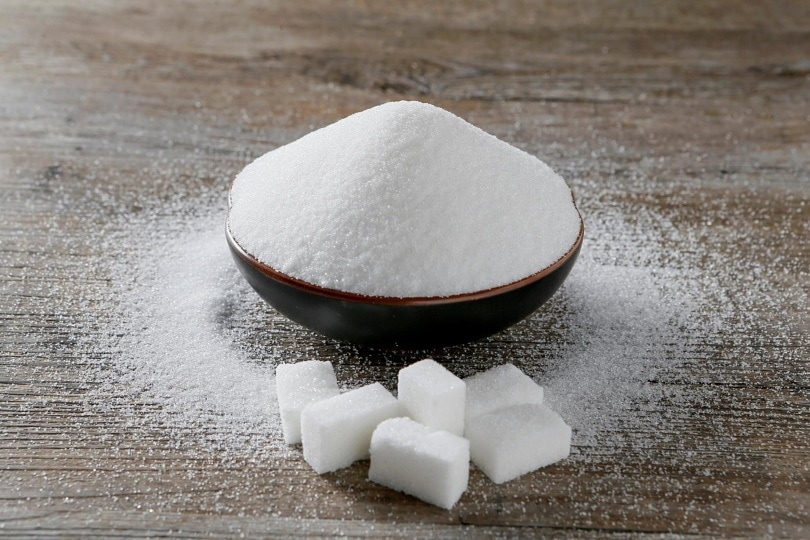
Can My Dog Eat Rice Pudding Occasionally?
We can see that plain rice pudding isn’t toxic for your dog, but it isn’t the healthiest treat to give your four-legged friend. However, if you enjoy rice pudding once every few weeks or so, allowing your dog a bite or two won’t be a huge issue. The key is moderation. Allowing your pooch to eat anything high in fat and sugar isn’t great for their diet.
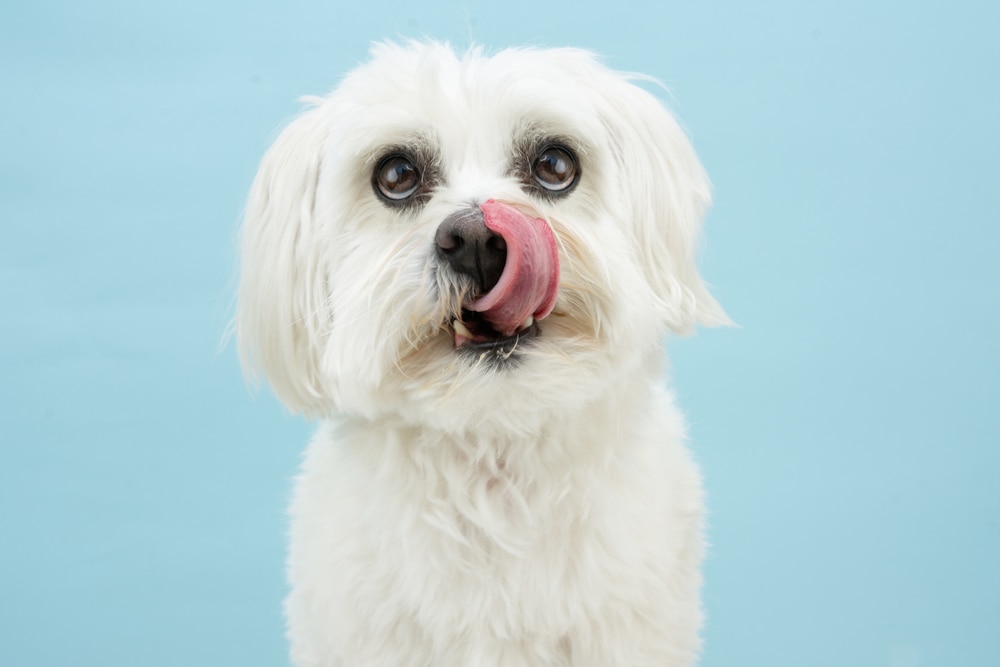
The Dangers of Rice Pudding
Like with many human foods we allow our dogs to eat, it is important to read the ingredient list carefully, because there are several food items that are perfectly safe for humans but toxic for dogs. Among the most dangerous are raisins and the artificial sweetener, xylitol. Chocolate and nutmeg are also often added to rice pudding and should not be fed to dogs. If you truly want to allow your dog a bite or two of rice pudding when you’re enjoying it, the key is ensuring it’s plain white rice with no additions. You can also make your own at home so you know for sure that nothing inside is harmful to your dog’s health.
Summing Up
As you can see, rice pudding, tasty as it is, isn’t the greatest treat to offer your dog. Luckily, however, for dog owners who love this treat, plain rice pudding is not toxic to your pet. While we don’t suggest making rice pudding a part of your dog’s regular diet, if you share one bite or two on occasion with your best friend, there shouldn’t be any toxic side effects. Keep in mind, however, a diet that is high in fat and sugar isn’t good for your dog and can result in health issues down the road.
Featured Image Credit: Pixel-Shot, Shutterstock

